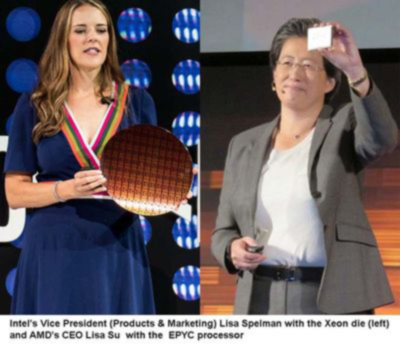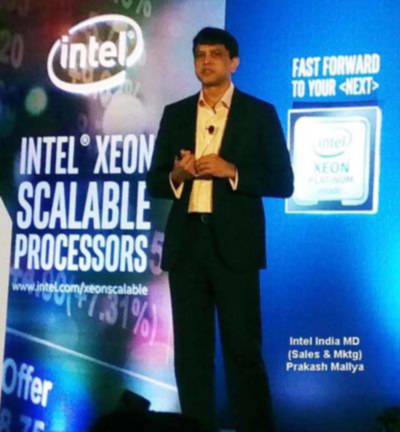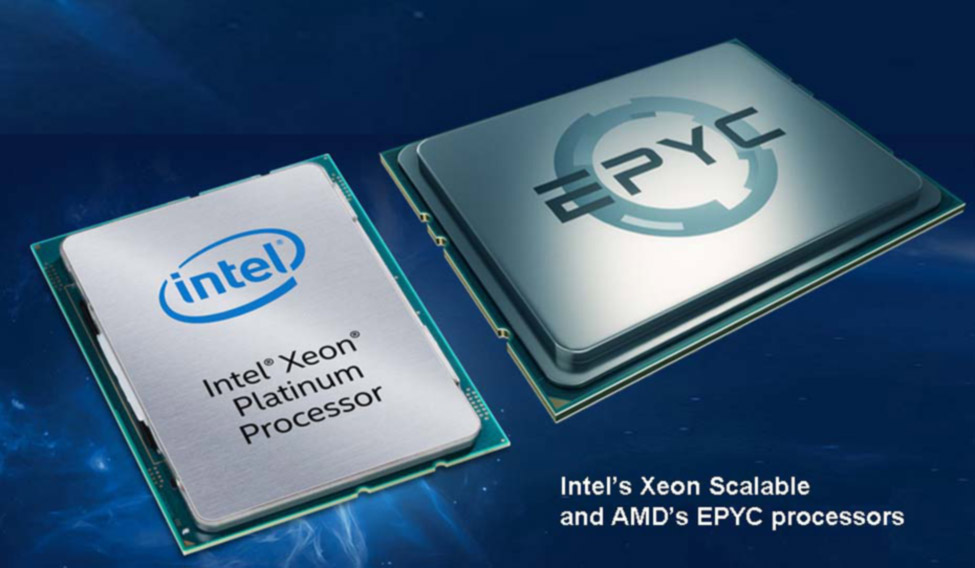If we had any doubts in the matter, Intel's global announcement this week, has set them right: For high performance computer processor makers, the modern Cloud-era data centre is the pot of gold at the end of the rainbow. The desktop PC business is hardly growing, if not dying—in the face of smaller form factors and all-powerful phones. Mobile phones are fueled by a different class of processors where players like Qualcomm and Mediatek dominate.

That leaves the server as the last big market opportunity for traditional chip-centric companies. Intel dominates this market— but last month AMD seriously improved its product offerings with the new EPYC 7000 family of processors with a highly scalable System on Chip (SoC) design ranging from 8-core to 32-core—and on a single socket at that. HPE, Dell, Asus, Gigabyte, Lenovo, Wistron and others, swiftly announced EPYC-based server products. Microsoft, Red Hat and VMware showcased optimized support for EPYC.
Over the years AMD has been first with may chip innovations including 64-bit CPUs, multi-core processors and virtualization. But this is an industry where competitors constantly catch up to level the field. In this case we had to wait barely a fortnight.
On July 11 & 12, Intel unveiled its own improved Xeon processor line—a family of 4 processors—Bronze, Silver, Gold, Platinum—offering different levels of performance and up to 28 cores per processor. The new scalable processor family—based on Intel's Skylake architecture—involve a radical change in how the core in a chip connect with each other: what used to be a ring is now a mesh—making it easy to scale performance up and down depending on the load. However Intel's is still a 2, 4 or 8 socket solution, unlike AMD's single socket.
But a palpable change could be seen in the way Intel is marketing its latest offerings. I have attended Intel launches for 20 years —usually at its annual IDFs or Intel Developer Forum expos. This is the first time it is focusing on solutions rather than chips. In fact it distributed 500,000 of the new Xeon processors to server makers as early as November last year and this week was able to point at end solutions from the likes of HPE, Dell and Lenovo, which have successfully deployed the Xeon Processor Scalable Family to demonstrate 1.65x to 2.2x performance improvements over the previous generation of Xeons.
India angle
In India, the National Stock Exchange and cloud service provider NextGen were among those who were able to try out the new Xeon family ahead of its commercial launch. "The Bangalore -based teams of Intel contribute several IPs (intellectual properties) to the Xeon Scalable platform", revealed Senior Director ( Engineering), Intel India, Srikanth Nimmagadda, at the Bangalore launch event.

In another canny move that shows how Intel wants to move up the value chain fro chip provider to solution provider, it also offered ready-made "Select Solutions"—combos of hardware and software for, VMWare's Virtual SAN, Microsoft's SQL Server and Ubuntu's NFVi . It is now working with system providers like HPE, Ericsson, Lenovo and Huawei to offer the data centre and infrastructure client with ready made solutions.
Said Prakash Mallya, Managing Director, Sales & Marketing Group, Intel India: “As India Inc. increases its investment in technology, the country’s data centre and network infrastructure will undergo a massive transformation. Emerging use cases in the financial, ITeS, healthcare, and academic sectors will necessitate agile networks that can interpret and implement decisions based on artificial intelligence, HPC, and in the near future, 5G."
The latest chip-level developments at Intel and AMD may end up placing before Indian clients a new and more cost effective option for the large data centre. And don't be surprised if HP, Lenovo Dell and others in the High Performance server market, offer their customers a choice between platforms fueled by Intel's scalable Xeon and AMDs EPYC. May the best number cruncher win!



